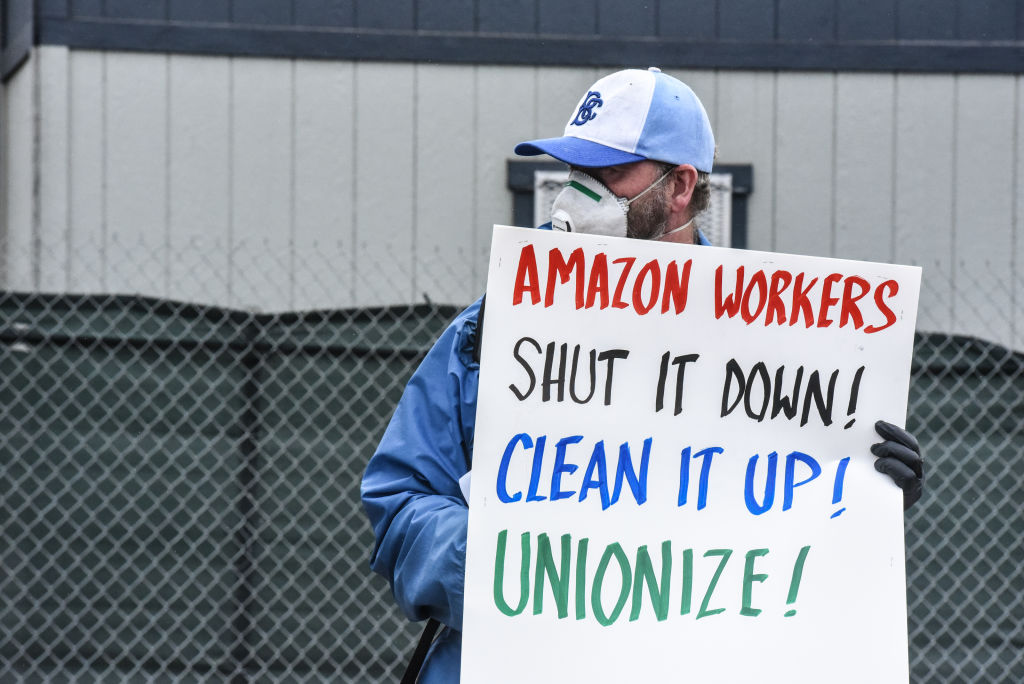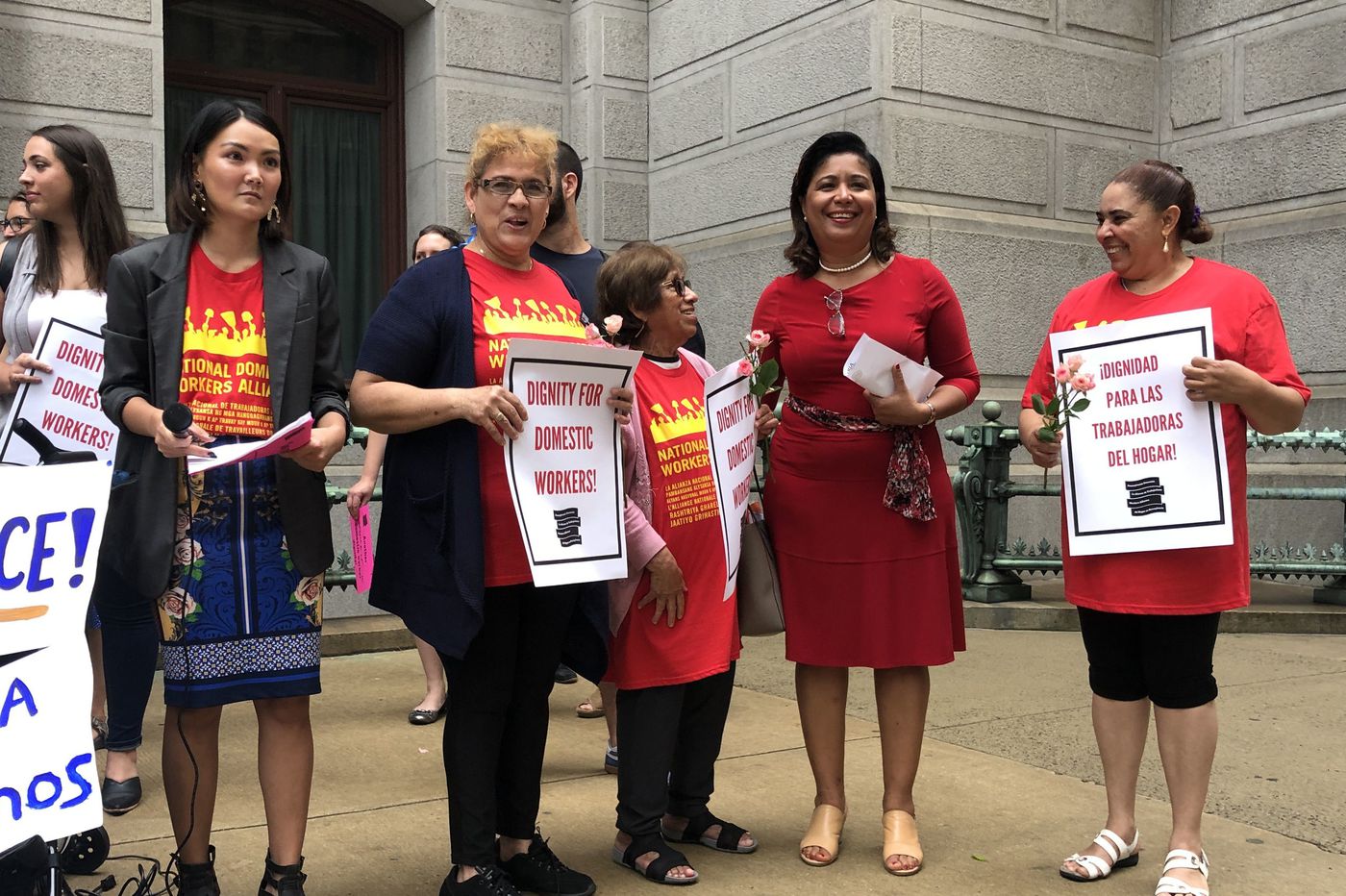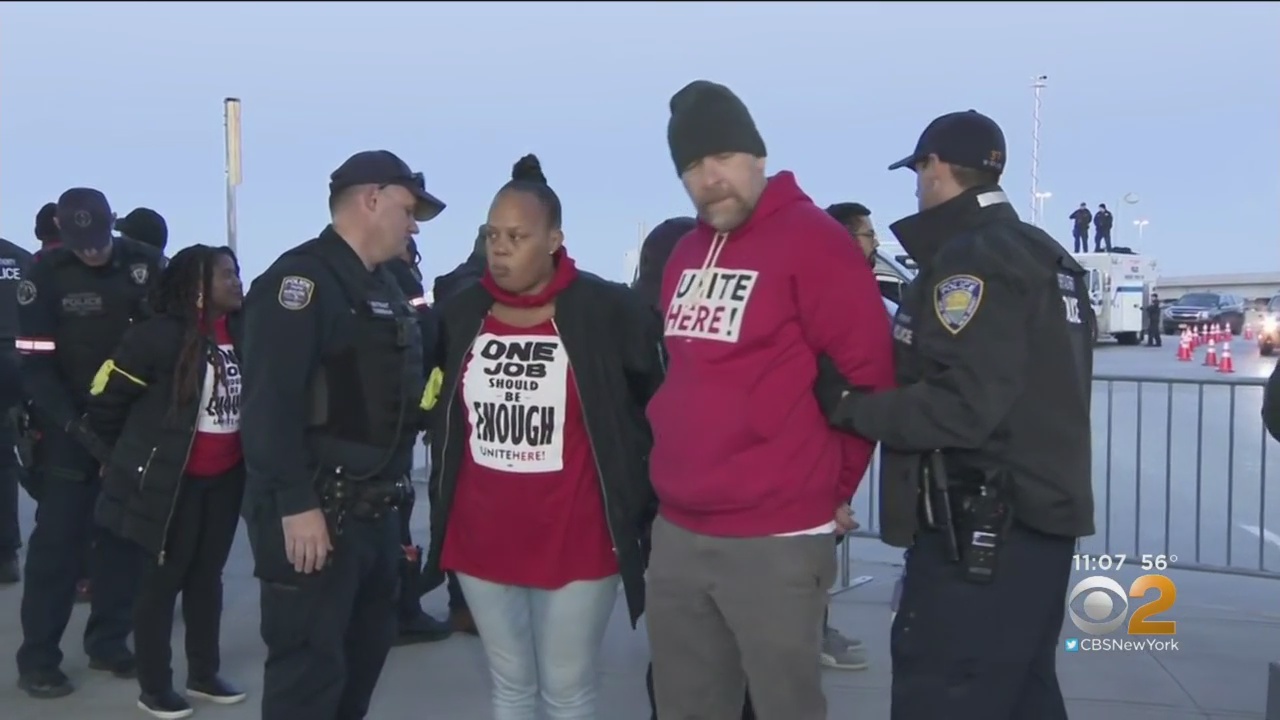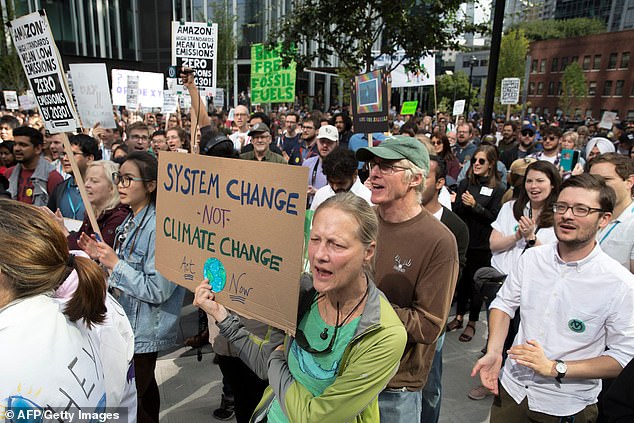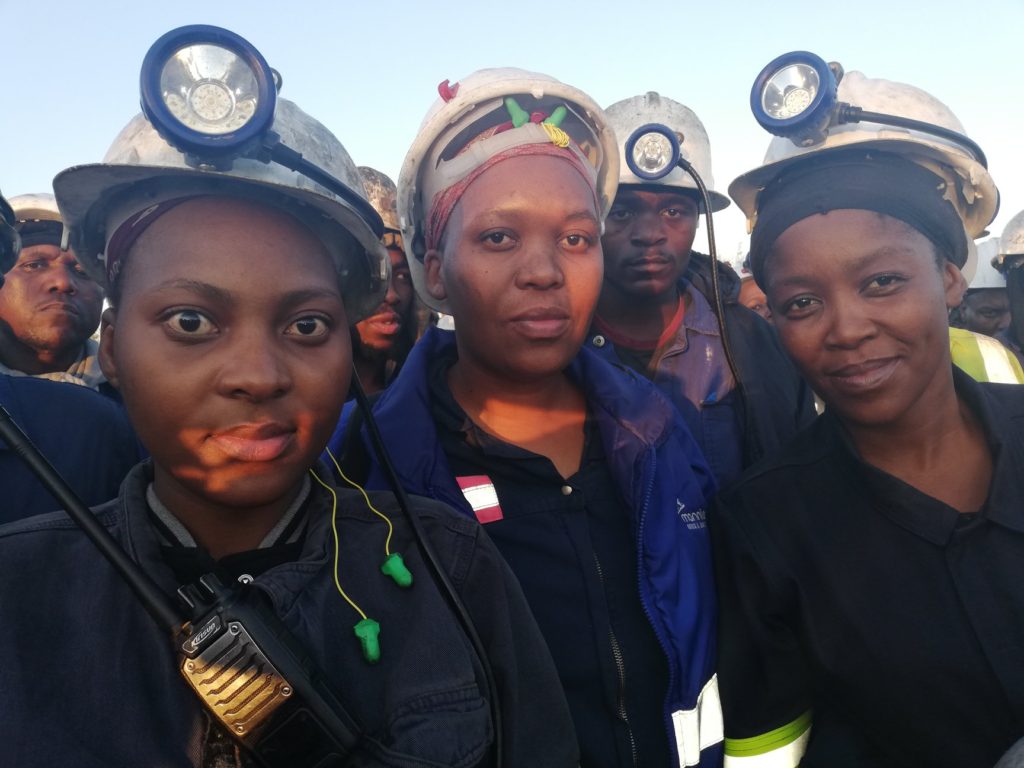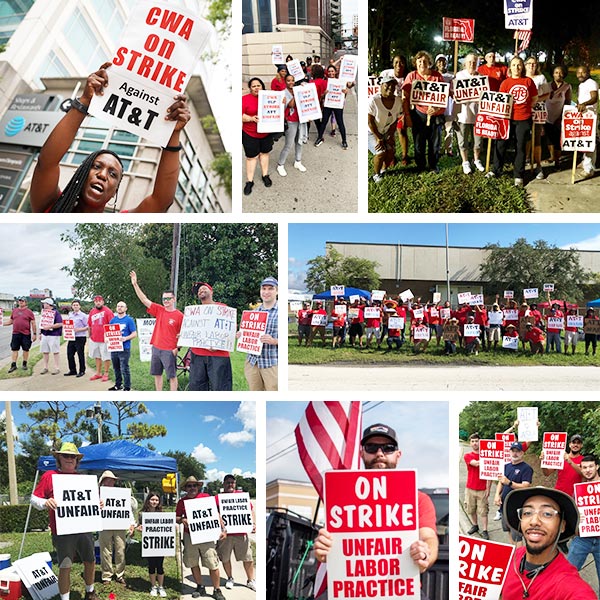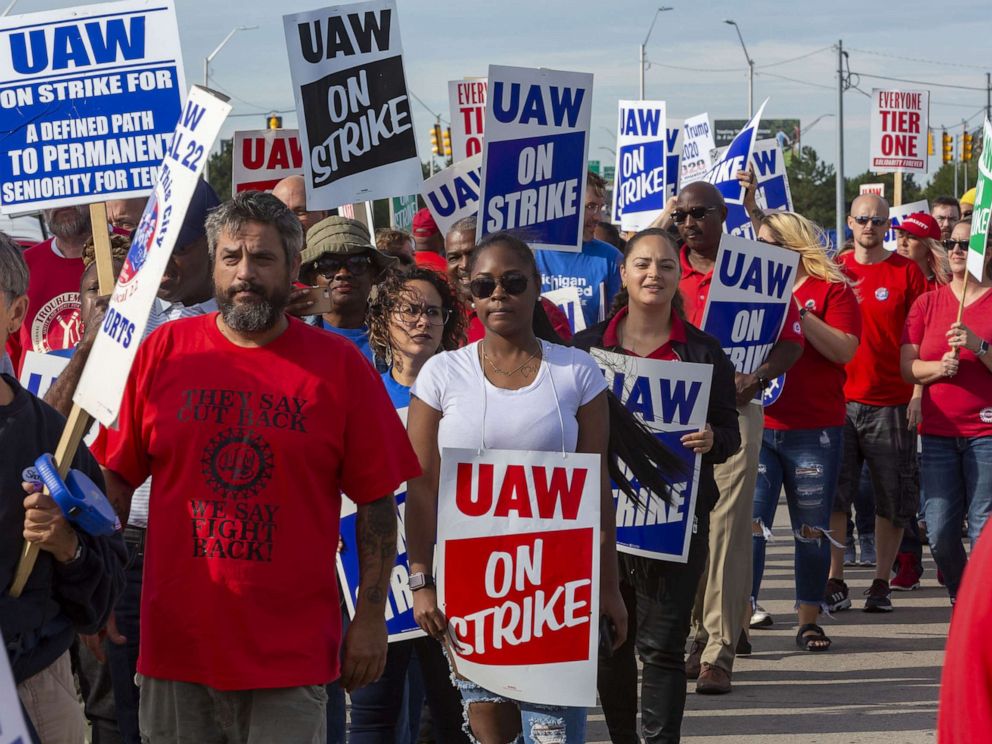
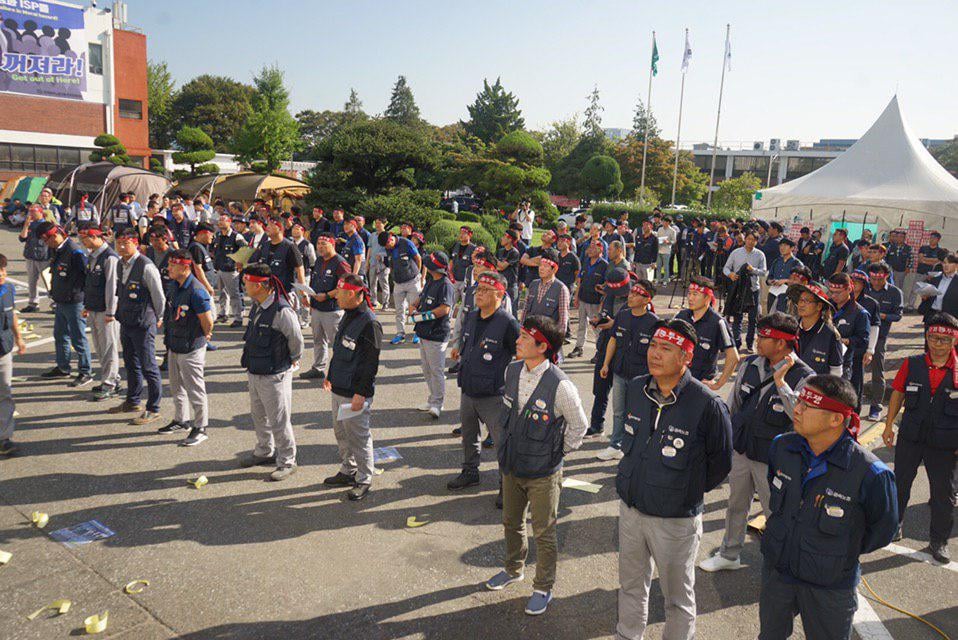
By Gregory William
Forty-nine thousand General Motors workers began striking on September 16. This is the largest private sector strike in the U.S. since GM workers walked out in 2007. The capitalists are increasingly denying workers benefits and regular jobs as they make super profits from using and discarding workers at will. A major issue of the strike in all three countries is the right of temporary workers to equal pay and job security. This strike helps all workers. As usual, the capitalist government sides with GM as it harasses and arrests strikers on various picket lines.
Members of the United Automobile Workers union, or UAW, the strikers are pushing back against GM’s attacks on the workforce carried out in the aftermath of the 2007-2009 recession. During the recession, the government bailed out GM with $50 billion in taxpayer money, just as they did with the giant banks. Instead of improving conditions for the workers, GM “restructured”, bringing in more low-paid temp workers and subcontractors. Over time, the number of regular, full-time union employees has declined. Employees are increasingly overworked.
GM has effectively increased the level of exploitation in its plants, bringing in $35 billion in profits over the last three years. In 2018, they paid no federal income taxes. Now, they have the nerve to ask employees to pay more for health insurance. The workers are not standing for it.
GM’s anti-worker restructuring shows that, under capitalism today, no workers are truly secure. What we used to call “good jobs,” (jobs with benefits, decent pay, etc.) can be put on the chopping block at any moment. It is increasingly important for workers to stand together, whether we are full-time, part-time, temp, or subcontractors.
One of the most advanced demands of the union is for GM to reopen a car factory in Lordstown, Ohio. GM had shut down this facility, along with plants in other states, as part of a cost-cutting measure that resulted in the loss of thousands of jobs. Workers demanding that a factory be re-opened indicates that the working class is becoming more assertive and confident of its power. The UAW was built when workers occupied the factories they were striking against. The time has come to say, “our labor, our plants!” and take them over.
The bosses need us. We don’t need them!
